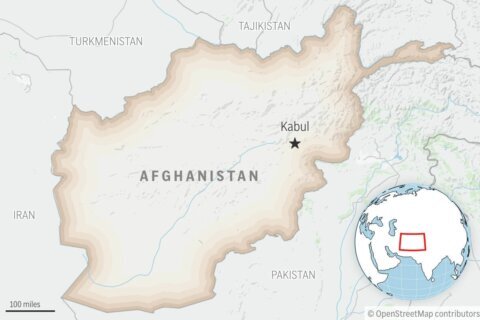If there’s really an app for that, Jihane Bentaleb will find it. Bentaleb, a Moroccan student pursuing a master’s in strategic marketing at the University of Wollongong in Dubai, uses a number of apps in her daily life as an international student.
“Most of the applications I use are mobile versions of websites I use,” says Bentaleb.
More than 50 percent of users in Egypt, Jordan, Lebanon, Saudi Arabia and the United Arab Emirates said they had downloaded five or more apps during the previous month, with gaming and social media the most popular choices, according to a recent study by On Device Research.
For students at Arab region universities, apps are not only convenient but offer a wealth of resources at their fingertips.
Find out [the factors to consider when choosing a university in the Arab region.]
1 . Educational apps: There are many educational apps used by students at universities worldwide. One example is the Khan Academy app, which offers video tutorials on several subjects, and is an app Bentaleb turns to often for help with her statistics classes. There is also Apple’s iBooks app, where users can download and read a variety of books from classics to bestsellers.
“I read books while in public transport or before sleeping,” says Bentaleb, who uses the app for general knowledge and personal development. “It’s practical because of its built-in dictionary and no need for extra light.”
Bentaleb frequently uses the TED app to watch short videos of talks as well as the iTunes U app, which she says “offers a large number of lectures from top universities.”
Then there’s Coursera, which partners with universities and organizations to offer free online courses users can enroll in. Bentaleb says she uses the app to choose classes related to her studies and career, such as digital marketing and data analysis.
One resource for Arabic speakers is Rufoof, Arabic for “shelves,” an app that offers access to a large library of Arabic-language e-books.
2. University-related apps: Some educational apps are part of university systems, like the mobile version of Moodle. The popular e-learning platform used at the University of Balamand in Lebanon is one accounting major Mario Kooz uses on his phone.
“We share reading and assignments between students and the instructor,” says Kooz, who notes the app facilitates direct interaction between the two.
Many universities like the UAE’s Khalifa University and the University of Sharjah have their own apps. University apps typically allow students to view their class material or grades, and have access to the university library, maps, directory, videos and more.
Explore how [Arab region universities are evolving.]
3. Social media apps : Many universities also have their own Facebook page. Shams Ayad Alqassim, an Iraqi attending pharmacy school at the Applied Science Private University in Jordan, says Facebook in general has been a useful app for her. The university and the pharmacy school maintain separate Facebook pages.
Pharmacy students have a separate group page on Facebook where they post questions and examples about lessons and exams. Alqassim also frequently uses Facebook’s Messenger app to communicate with fellow students. The app has been especially helpful for busy students who need quick access to the page using their mobile phones.
“We send each other the important things in our lessons and we ask each other questions about anything we didn’t understand,” says Alqassim, who says sometimes instructors participate as well.
Syrian Rami Kaspar, a recent psychology grad from Lebanese American University, used texting and messaging app WhatsApp while in school to start a psychology group for fellow majors, which he says still exists three years later.
“We helped each other and sometimes explained a lecture,” says Kaspar. “If for instance, I took the course before one of my friends, we would answer each other’s questions.”
Like Kaspar, Kooz uses WhatsApp to connect with classmates as an extension of the classroom. WhatsApp allows users to create groups and have live discussions.
“On WhatsApp, my friend created a group for each course and we discussed through it everything related to the course,” says Kooz, such as assignments, or topics that required further explanation beyond the class.
4. Language and dictionary apps: Many students find dictionary apps useful when attending a university where English is the main language. Bentaleb uses an English dictionary app for easy translations into English and an app called Memrise to learn German, which she studies “to differentiate my profile a bit as the job market is very competitive.”
Pharmacy student Alqassim uses the Google Translate app to translate medical terms from English to Arabic.
“We have a lot of medical terminology,” she says. “I can write a word or take a picture of it or say it by recording it. It writes the word, and if I want to hear it I press on the little microphone and it says the word. And it’s very fast.”
Explore how [Arab region pharmacy schools are preparing students for careers.]
Kooz is also a fan of Google Translate and says when he first began at the University of Balamand he was “weak in English a little.” He says even though his English is better, he still uses the app a lot.
The number of apps available is virtually endless. And while mobile phones can’t entirely replace computers, they do come in handy for students on the go.
“For serious studying I use my computer,” says Bentaleb. “I use apps because they are easily accessible anytime and anywhere.”
See the complete rankings of the Best Arab Region Universities.
More from U.S. News
Extracurricular Activities Grow at Arab Region Universities
5 Facts About American-Style Universities in the Arab Region
Green Degrees Grow at Arab Region Universities
Handy Apps for Students at Arab Region Universities originally appeared on usnews.com






